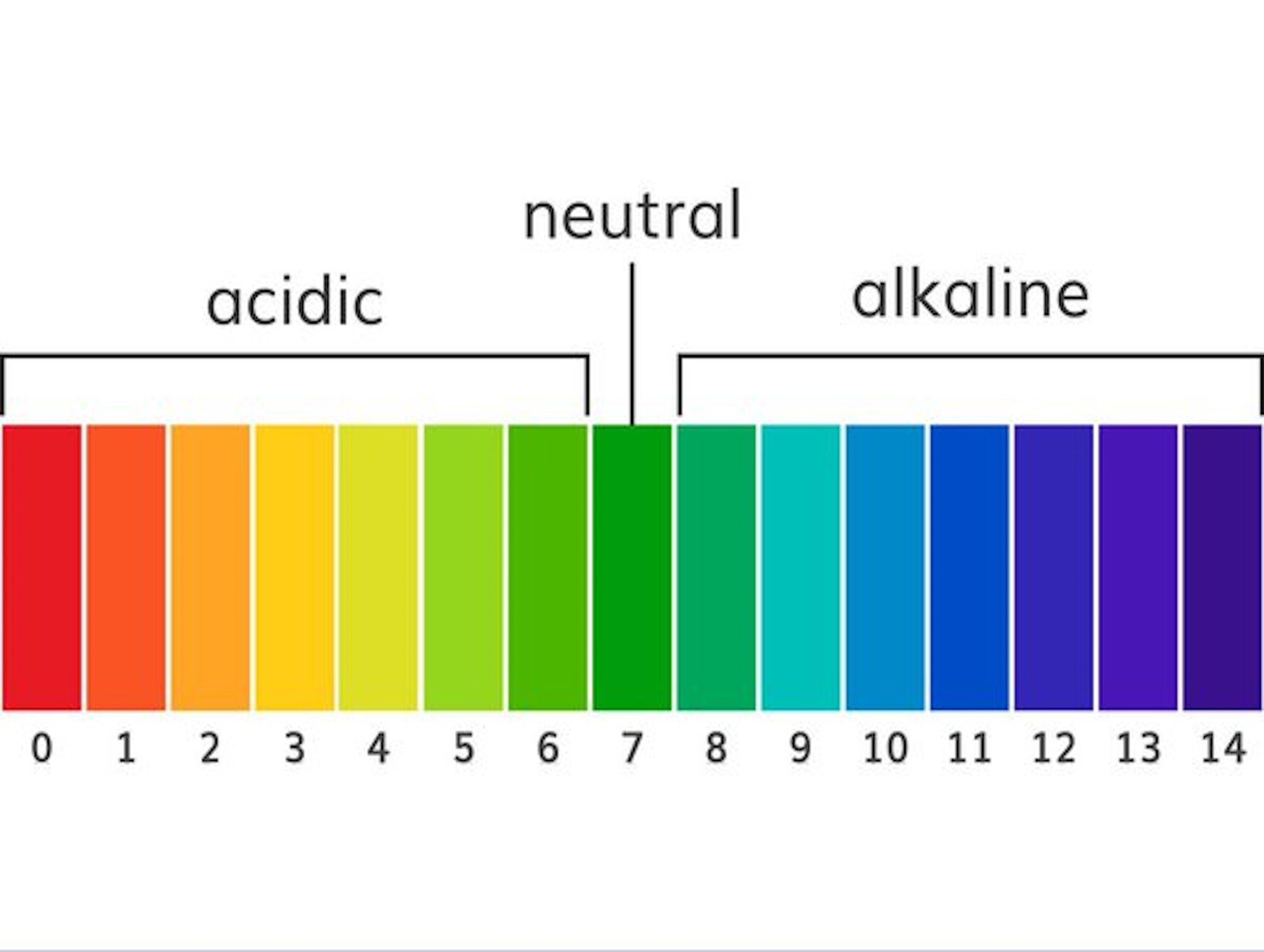Greetings,
It's been well over 15 years since I first stumbled upon an alkaline water ionizer, and during that time, I felt a curious mix of astonishment, fascination, and skepticism. Many of you may relate to this blend of emotions when encountering terms like Kangen water, ionized water, or similar monikers, all essentially referring to the same concept.
Back then, I was astonished by the purported capabilities of an alkaline machine, deeply intrigued by the manufacturers' bold claims, and yet, I couldn't help but maintain a healthy dose of skepticism. It all seemed too good to be true.
For those of you who might recall my testimonial from 2008, I decided to embark on a self-experiment as a willing guinea pig. I committed to trying out this technology for three months, meticulously recording my health status through self-observation. I scrutinized any noticeable changes in my mood, energy levels, bodily symptoms, fluctuations in preexisting pains, and more. If you're interested in delving into the details of my 2008 three-month trial, you can find my report here under November '18: Read More
Over the past decade, the discourse surrounding alkaline ionized water has been a contentious one, with passionate arguments both in support and against it. Skeptics, in particular, have endeavored to debunk the concept online.
One of the most persistent debunking arguments involves the human stomach's acidic nature and the apparent contradiction with alkaline water. It's been presented as if the stomach is merely an acidic pouch that transforms everything it encounters into acidity. This argument has dissuaded many individuals, causing them to lose interest or even abandon their alkaline water devices prematurely. However, this argument is not grounded in physiological reality; there's no acidic pouch in the stomach!
The human body operates with far more sophistication than this simplified picture suggests. If we were to believe in the existence of this acidic pouch, every morsel of food and sip of liquid we ingest would turn our bodies overwhelmingly acidic, given that the stomach's gastric acid boasts a pH ranging from 1.5 to 3. Such acidity would perpetually trigger inflammation and chaos within us. Yet, this is not how our bodies function.
Let's delve into some stomach facts:
The parietal cells house an extensive secretory network known as canaliculi, from which hydrochloric acid is secreted into the stomach's lumen. The pH of this gastric acid varies between 1.5 to 3.5 in humans, and it's crucial to comprehend that this acid is only secreted when needed for protein digestion. Outside of mealtimes, the stomach remains relatively tranquil, and the drinking water we consume isn't adversely affected by the occasional presence of hydrochloric acid.
In the past seven years, I've had the privilege of attending the annual AIMA conference, a two-day event uniting Australasian Integrated Medical professionals, holistic doctors, homeopaths, naturopaths, dentists, chiropractic practitioners, nurses, and more. These conferences, typically held in April in Auckland, are open to the curious public and feature numerous lectures on holistic health, medical research, and emerging insights.
Two years ago, I found myself captivated by Rachel Arthur's lecture, one of the leading nutritionists in Australasia. Her presentation centered around acidosis—the persistent acidic pH within the body and its consequences. Allow me to share some key takeaways:
On the surface, a predominantly acidic lifestyle might appear benign to the blood, as the body adeptly maintains blood pH equilibrium to ensure optimal function. However, the deeper implications suggest otherwise. Acidosis exacts its toll, primarily affecting the extracellular fluid over time and necessitating constant blood support to buffer acidity. This process leads to a range of ramifications.
Historically, traditional diets in ancient cultures emphasized alkaline-rich foods, primarily vegetables and fruits, with modest meat and fish consumption. These diets were abundant in potassium, magnesium, and calcium.
In stark contrast, today's Western diets are predominantly acidic, saturated with high sodium chloride (salt) intake—a potent acidifying factor. Excessive sugar, fats, carbohydrates, and alcohol further contribute to a cocktail of energy-dense, nutrient-poor foods. This dietary shift has significant implications.
The modern acidogenic factors in Western lifestyles now encompass:
- High-intensity exercise/workout—surprisingly, this can contribute to bodily acidity.
- An unbalanced diet with an excessive intake of acidifying foods and drinks; striving for a balanced ratio of 20% acidic to 80% alkaline is advisable.
- Alcohol consumption.
- Stress.
- Inflammation.
- Impaired pH buffering capacity in the body, such as bicarbonates.
- Mitochondrial dysfunctions.
These factors culminate in acidosis—an imbalance between acidity and alkalinity—resulting in the kidneys, muscular system, and lungs becoming increasingly overwhelmed. The burden primarily falls upon the kidneys, struggling to eliminate metabolic acids from the body.
This issue intensifies beyond the age of 45, as the kidneys' capacity gradually diminishes. When the body consistently grapples with a high acidic load, excess acidity is stored in fatty tissues, a process exacerbated by aging kidneys. In the initial phases, acidosis leads to cramping, muscle problems, muscle wasting, and osteoporosis as bones relinquish calcium and magnesium, along with inflammation.
However, the situation escalates. Chronic, mild to severe metabolic acidosis emerges, not immediately life-threatening but profoundly debilitating. This condition manifests in various acidic conditions such as gout, arthritis, high cholesterol, high blood pressure, low energy, compromised immune system function, and susceptibility to adult-onset conditions like diabetes and cancer cell proliferation.
Moreover, a weakened immune system becomes more susceptible to the growth of cancer cells. The importance of accurately assessing the body's pH becomes evident. Notably, a simple urine or saliva test falls short, as it only reflects the pH of the last 10 to 20 hours, influenced by recent food and drink intake.
To comprehensively gauge the body's pH status, three distinct tests are recommended:
A) Urine analysis B) Serum bicarbonate levels test (aiming for well above 26mmol/litre) C) Anion gap calculation (optimal levels under 10mEq/l for alkalinity)
While urine testing provides immediate insights into recent acid load, it's essential to consider the broader picture by conducting tests B and C. These assessments typically require the expertise of specialized naturopaths, nutritionists, or integrated doctors.
Now, what's promising is that an alkaline-balanced body reaps substantial benefits. It experiences elevated energy levels, reduced stress, and increased resilience against severe illnesses, thanks to a healthy bloodstream, robust mitochondria, thriving blood cells, and efficient cell rejuvenation—practically an environment where inflammation barely exists.
The immune system operates optimally, defending against threats, including the suppression of cancer cell growth. In contrast, an acidic and stressed body weakens the immune system, making it more susceptible to the proliferation of cancer cells.
I've witnessed countless individuals over the years, with varied dietary habits, benefit significantly from embracing an alkaline lifestyle. When people prioritize alkaline living, they invariably enjoy robust health and vitality. In my view, this investment in your body's wellbeing is priceless—ensuring that your lifelong companion, your body, remains vibrant and
and active.
The global momentum behind the Alkaline Lifestyle is undeniable. Asian cultures have embraced alkaline diets for millennia, Mediterranean cuisine stands as one of the healthiest globally, and holistic health professionals worldwide have fervently promoted alkaline living in recent decades.
In Europe, the Acidic Base Symposium, organized by Professor Juergen Vormann, a nutritional biochemistry expert, gathers researchers and health professionals to delve into the profound effects of acid-base balance. Professor Vormann's book, "The Alkaline Solution - Surviving the modern western diet," underscores how acid-base imbalance and magnesium deficiency contribute to conditions like diabetes, heart disease, depression, migraines, cancer, and pain management.
The global awakening to the importance of pH balance and its implications on health extends to the United States. The documentary series "The Truth About Cancer," hosted by Tai Bollinger, has shed light on critical insights from doctors and experts on cancer, acidosis, inflammation, immune system deficiencies, and more.
Furthermore, from an agricultural perspective, New Zealand farmers have observed that livestock thrives on alkaline soils, highlighting the profound impact of pH balance on living organisms.
Here in New Zealand, prominent nutritionist Ben Warren has passionately advocated for the alkaline lifestyle and water ionizers. Watch the video here
While adopting a predominantly alkaline diet may not be suitable for everyone, the vast majority reap tremendous benefits from it. This is precisely why we, at Ionza, are committed to what we do—providing daily support through alkaline ionized water, enriched with magnesium and other essential components.
This support ultimately empowers us to maintain good health because alkaline living simply makes sense. But wait, there's more to it! Alkaline ionized water offers four additional ingredients that deliver powerful health benefits:
-
Hydrogen: An exceptional antioxidant, more potent and effective than vitamin C.
-
Structured Water: With smaller clustered molecules for enhanced uptake of alkaline properties, superior detoxification, and optimal hydration.
-
Ionic Minerals: Facilitating better absorption of water's nutritional properties.
-
Electrons: Supporting blood cell rejuvenation and promoting energy flow and exchange in the body.
Millions of individuals across the globe have already harnessed the benefits of alkaline ionized water through various filtration systems and machines.
In closing, it's vital to remember that good health is a lifelong companion. An alkaline lifestyle empowers us to enjoy vitality and well-being throughout our journey. So, why not embrace the alkaline way of life? Your body will undoubtedly thank you for it.
Wishing you vibrant health and an alkaline-rich life,


















